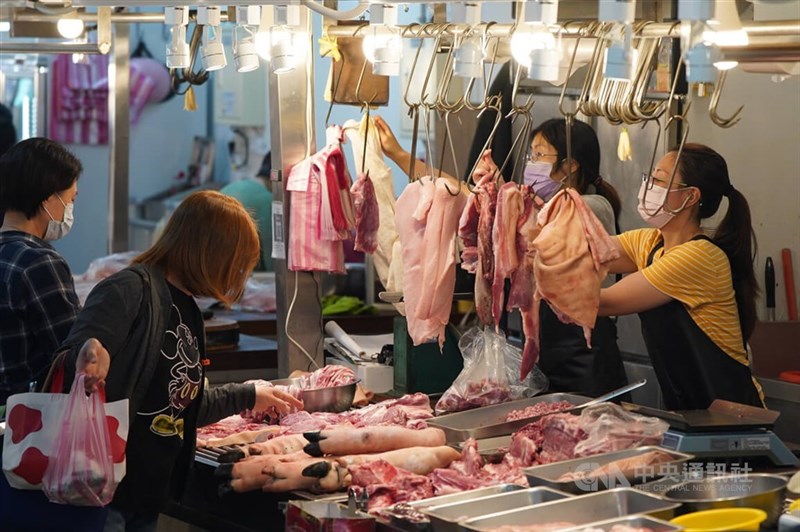
Taipei, May 5 (CNA) Taiwan will not strengthen random inspections for ractopamine in pork products despite detecting residues of the controversial veterinary drug in imported pork for the first time since the ban on it was lifted in 2021, a Taiwan Food and Drug Administration (TFDA) official said Monday.
According to the TFDA pork monitoring dashboard last Tuesday, a shipment of 22.99 metric tons of pork items from Australia on April 29 was found to contain 0.001 ppm of ractopamine, with pork knuckle determined to be the offending product.
That was well within the TFDA standards for ractopamine limits, set at 0.01 parts per million (ppm) for pork meat, fat and other edible parts, and 0.04 ppm for organs like liver and kidneys.
Appearing at a press conference Monday, TFDA Director-General Chiang Chih-kang (姜至剛) was asked whether the TFDA will enhance random checks for ractopamine at the border after the substance was detected.

He responded that random inspections for qualified products will not be strengthened, and that the names of products with ractopamine will be made public only if they have excessive levels of ractopamine residue.
According to TFDA statistics, from Jan. 1 2021 to April 30, 2025, a total of 25,466 shipments of pork meat and offal were tested for ractopamine, and only one batch tested positive for the additive.
Chiang contended that all products that qualify for importation will not harm human health even they are consumed every day or for a lifetime.
There are 26 countries that allow the use of ractopamine as a feed additive for pigs, including the United States, Canada, New Zealand, Australia, Japan and South Korea, he said.
Yet ractopamine is still banned in many countries, including in the European Union and China, amid concerns that it has a negative impact on animal and human health.
Ractopamine is used to promote muscle growth in animals and make them heavier before they are slaughtered to fetch higher prices per animal, but it has no therapeutic value and its use has been panned by animal rights groups.
The United Nations food standards body, the Codex Alimentarius Commission, voted to adopt maximum residue limits for ractopamine in pigs and cattle in July 2012 by a 69-67 margin in a vote seen as more political than science-based.
Some legislators voiced concern that the Australian case at Taiwan's borders might be used to test the waters and gauge public acceptance for the import of American pork containing ractopamine residues at levels within legal limits.
Chiang denied this, however, saying it was not a fact.
- Business
Taiwan shares extend momentum in wake of Nvidia H20 leads
07/16/2025 05:07 PM - Cross-Strait
Kinmen-Xiamen swim canceled over permit issues
07/16/2025 04:48 PM - Business
U.S. dollar closes sharply higher on Taipei forex market
07/16/2025 04:16 PM - Culture
Taiwan Plus cultural festival to be held in Osaka in August
07/16/2025 03:45 PM - Science & Tech
Apple Watch's sleep apnea detection feature available in Taiwan
07/16/2025 02:57 PM